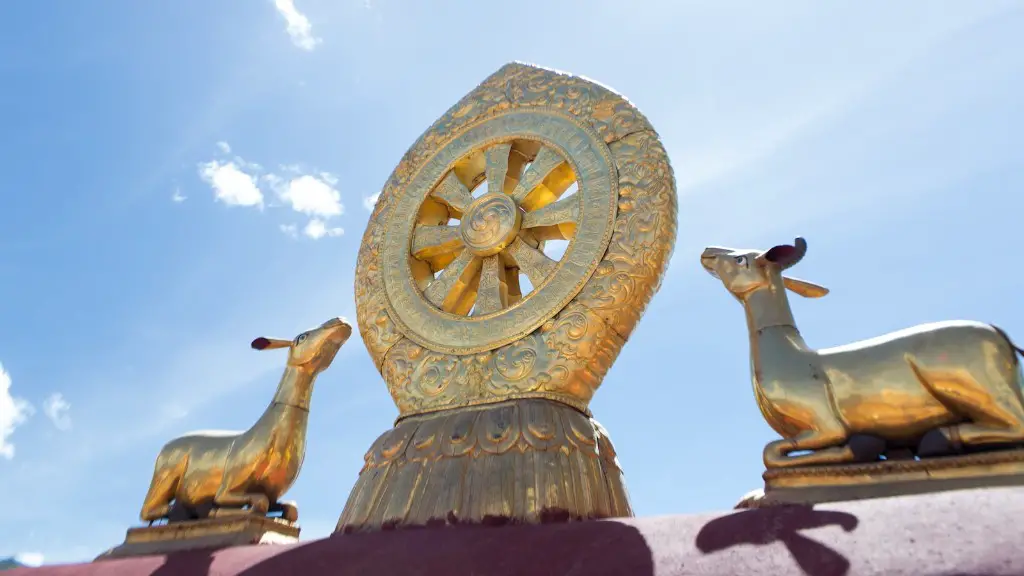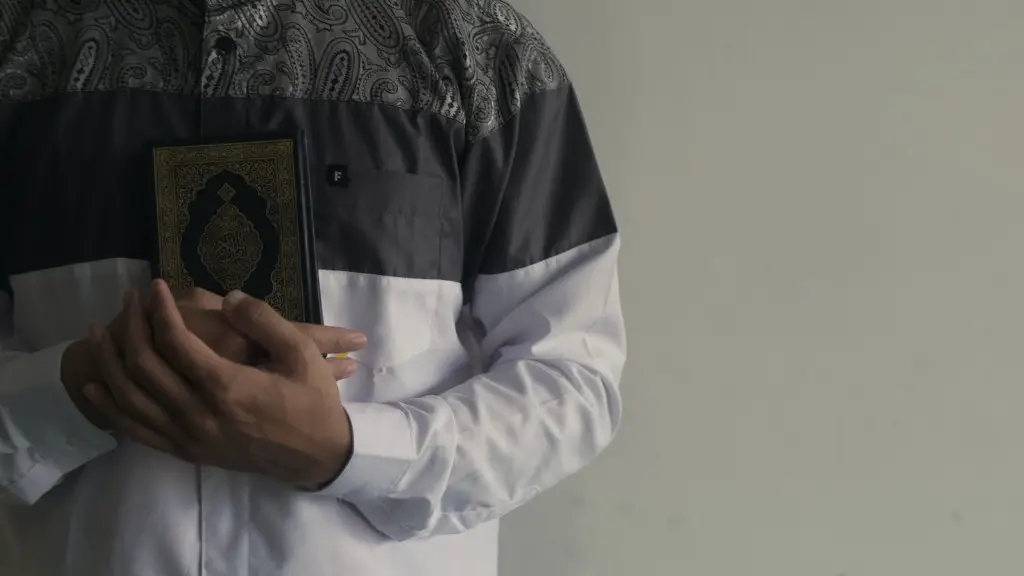Some people believe that it is a sin to pray for the dead in Christianity. Others believe that it is an act of worship. To understand the true answer, we must understand what the Bible says about praying for the dead in Christianity.
The Bible does not specifically mention praying for the dead, so it is important to consider what it does say about the subject. In the Old Testament, there are several places which talk about mourning for the dead, including in Jeremiah and Ezekiel. These passages emphasise the importance of showing sympathy for the bereaved and expressing sorrow for the dead.
In the New Testament, the book of Romans mentions “endless annihilation” and “unending punishment” in the context of judgment and what will happen to those who have died in sin. This passage is often interpreted to mean that the dead cannot be affected by prayer, so praying for the dead is generally not recommended by Christians.
Christian theologians, however, disagree on whether it is permissible or beneficial to pray for the dead. Some Protestant denominations view prayer for the dead as a form of superstition, while others see it as a meaningful part of the Christian faith. Even among those denominations that oppose it, there are varying levels of disapproval and understandings as to why praying for the dead may be sinful.
Catholics, on the other hand, often consider prayer for the dead to be a necessary part of their faith. The concept of praying for the dead is rooted in ancient traditions, many of which predate Christianity. For example, the ancient Egyptians, Greeks, and Romans believed that prayers for the dead could aid them in their journey to the afterlife.
In Catholicism, prayers for the dead are believed to help purify their souls and also to help them adjust to the transitory stage of purgatory, if necessary, before being admitted to heaven. This concept is based on the belief that certain sins, even those committed after baptism, must be atoned for in an intermediate state before the soul can be admitted to heaven. This idea is known as the doctrine of purgatory.
Overall, while the Bible does not explicitly mention prayer for the dead, many Christians choose to pray in memory of those who have passed away, believing that it will be of benefit to them in some way. Whether or not it is actually beneficial depends on one’s interpretation of the Bible, as well as their religious beliefs and practices.
Background Information on Prayers for the Dead in Christianity
Prayer for the dead has a deep history in the Christian faith. From ancient traditions to present day beliefs, many Christians have honored those who have passed by praying for them. Prayers for the dead can be seen in many different areas of the Christian faith, including in scripture, in the Catholic Church, and in Eastern Orthodox Churches.
In the Bible, several passages refer to praying for the dead. One example is from the book Ecclesiastes: “He who goes to the grave comes not back, neither does he return to his house”. This passage is often interpreted to mean that one should pray for those who have passed away, as they will not be able to do so themselves.
In the Catholic Church, prayer for the dead is often seen as a necessary part of mourning the deceased. Prayers are often said for the deceased to help them in their journey to the afterlife and to provide peace and comfort to the living.
Eastern Orthodox Churches also have a long history of praying for the dead. This tradition is based on the belief that the deceased can still benefit from prayers from the living, even if they have passed away. Prayer for the dead is seen as a way to show respect, love, and honor for the deceased.
Role of Modern Technology in Prayers for the Dead
Modern technology has had a significant impact on how prayers for the dead are shared and honored. Online memorials, social media platforms, and digital tributes are all ways that the deceased can still be remembered, even if they are no longer with us in person.
Online memorials and tributes have become increasingly popular over the past decade, as they allow for a larger number of people to pay tribute to the deceased. By providing a platform for people to share photos, stories, and memories, online memorials help to keep alive the memory of those who have passed away.
Social media platforms also offer a way for people to pay tribute to the deceased. These platforms allow for friends and family to connect and remember the deceased in a more personal way, by sharing photos and stories, as well as praying for the dead.
Finally, digital tributes are a way to honor the dead by creating a lasting memorial of their life and legacy. These digital tributes can include photos, videos, and even music, allowing the deceased to be remembered constantly, through every season and milestone.
Importance of Praying for the Dead
Praying for the dead is an important part of many Christian traditions, as it recognizes that our loved ones do not just pass away, but continue to exist in some way. Even if we cannot physically be with them, praying for their souls can provide us with comfort and peace.
Prayers for the dead can also help us to understand our own mortality, and to prepare for our own eventual death. By praying for the dead, we can more fully come to terms with the finality of death and consider how we wish to be remembered when we pass away.
Prayer for the dead is also important for helping us to connect to our faith and to believe in the afterlife. Through prayers for the dead, we are reminded that those we love can live on in a spiritual realm, and that our words and thoughts carry profound significance, even after death.
Finally, praying for the dead can help us to remember our role in heaven and on earth. Praying for the dead highlights the importance of being a light in this world and of showing compassion and love to those in need, no matter what the circumstances.
Criticism of Praying For The Dead in Christianity
Despite the importance of praying for the dead in Christianity, there are many who oppose this practice. These people view prayer for the dead as a form of superstition, and believe that it is not grounded in biblical teachings.
Others disagree and believe that prayer for the dead is an important part of honoring and remembering those who have passed away. Still, many question whether prayer for the dead can actually make a difference in the afterlife, and if it is actually beneficial to those who have passed away.
One of the most common objections to praying for the dead is that it is disrespectful to those who have passed away, as it takes away from their responsibility for their own salvation by placing it in the hands of others. This argument is often put forth by conservative Christians, as they believe that individuals should take personal responsibility for their own salvation.
There is also criticism of praying for the dead within the Catholic Church, as some view it as an unnecessary form of superstition. This is primarily due to the belief that the deceased cannot be affected by prayer, as their fate is already sealed in either heaven or hell.
Finally, there is the criticism that praying for the dead, especially those who are in purgatory, delays their ultimate journey to the afterlife. This idea stems from the belief that praying for the dead causes them to linger in purgatory, when instead they should be allowed to move on to the next stage in their heavenly journey.
Conclusion of Praying for the Dead in Christianity
At the end of the day, there is no clear answer as to whether or not prayer for the dead is beneficial in Christianity. While some believe it to be an important part of paying tribute to loved ones and honoring the deceased, others view it as a form of superstition and a distraction from personal responsibility for one’s own salvation. Ultimately, the decision as to whether or not to pray for the dead is a personal one, based on one’s own religious beliefs and understanding of the Bible.


